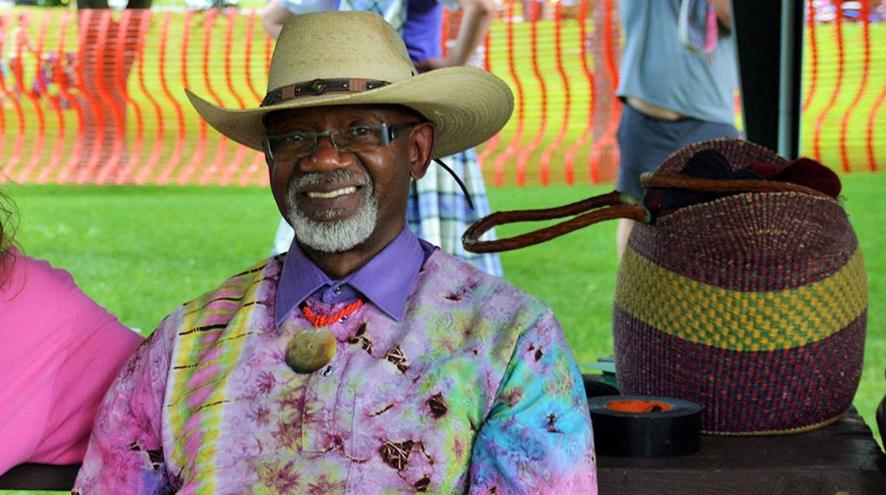Changing the future: Granville Johnson
Meet one of the British Columbians sharing their stories as part of Alzheimer's Awareness Month 2021.

January is Alzheimer’s Awareness Month – and, as we start a new year, it’s a great time to think about what we want the future to look like for people living with dementia, for caregivers – and ultimately for everyone! With people living with dementia and their caregivers facing more social isolation than ever in an increasingly uncertain world, we’re doubling down our efforts to change the future for British Columbians affected by dementia. This year, people across the province are sharing their experiences and hopes for the future – people like Granville Johnson, who is living with dementia in Sinclair Mills, a small community located on the north bank of the Fraser River between McGregor and Longworth.
Granville was first diagnosed with “possible Alzheimer’s disease” in 2016, after six years of strange symptoms. While his partner, Birgit, initially struggled with the “possibility” of the disease, Granville had learned to expect and embrace the worst-case scenario after two tours in the Vietnam War where he faced life-threatening injuries. Having a diagnosis – even an uncertain one – brought him some relief: “I had a name for what was going on.”
In 2020, a follow-up MRI confirmed his diagnosis was vascular dementia. “It was becoming clearer that it was dementia, and now we’re on the same page,” says Birgit.
Since his diagnosis, Granville has become a passionate advocate, taking part in the IG Wealth Management Walk for Alzheimer’s, a fundraiser for the Alzheimer Society of B.C., in 2019. He also joined multiple research groups, including one that focuses on stigma and its impact on quality of life for people with the disease. “Stigma prevents us from living well with the disease,” he says. “It affects how we are seen – by our communities, our families, our health-care providers – even ourselves.”
Granville sees addressing stigma and raising the profile of dementia as important first steps in changing the future for people on the dementia journey, but finds that reality is it is often up to people living with the disease to advocate for themselves to help people understand and address the stigma. “Dementia makes you a teacher – you have to teach other people as much as you have to learn.”
An accomplished musician and storyteller, Granville is turning to creative outlets to help get his message across, working on an album of songs inspired and informed by his experiences with dementia – and more recently, by the impact of COVID-19. He’s working on the album with a whole band of other musicians, but the because of the pandemic, they’re recording it remotely, passing songs from one person to the next and adding their performances as they go, developing them through improvisation.
“So many people are dealing with dementia, but society is still in denial,” Granville says. “I wish there was something that we could bottle and give to other people to help them understand. Advocacy is the only real defense against stigma.”
Read more stories
Learn more about the experiences of British Columbians affected by dementia and help us change the conversation – and the future! – for families on the journey.
